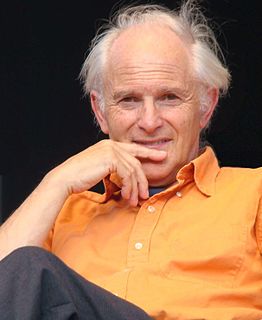A Quote by Amartya Sen
[Globalization] has enriched the world scientifically and culturally and benefited many people economically as well.
Quote Topics
Related Quotes
The demonization of Islam and immigrants shows that perception of difference remains one of our biggest problems, and maybe always will be for a species that began in small groups competing with other groups for resources. These apparently competing forces for sameness and difference sometimes even seem to be mutually reinforcing. The homogenizing force of globalization tends to make many people feel they are on the losing side, economically and culturally, and it is they who are most easily turned against those "others" who are demonized by demagogues.
I think that the movement against the World Bank, against the globalization process that is happening, is very positive. We need a globalization, a globalization of people who are committed to social justice, to economic justice. We need a globalization of people who are committed to saving this earth, to making sure that the water is drinkable, that the air is breathable.







































